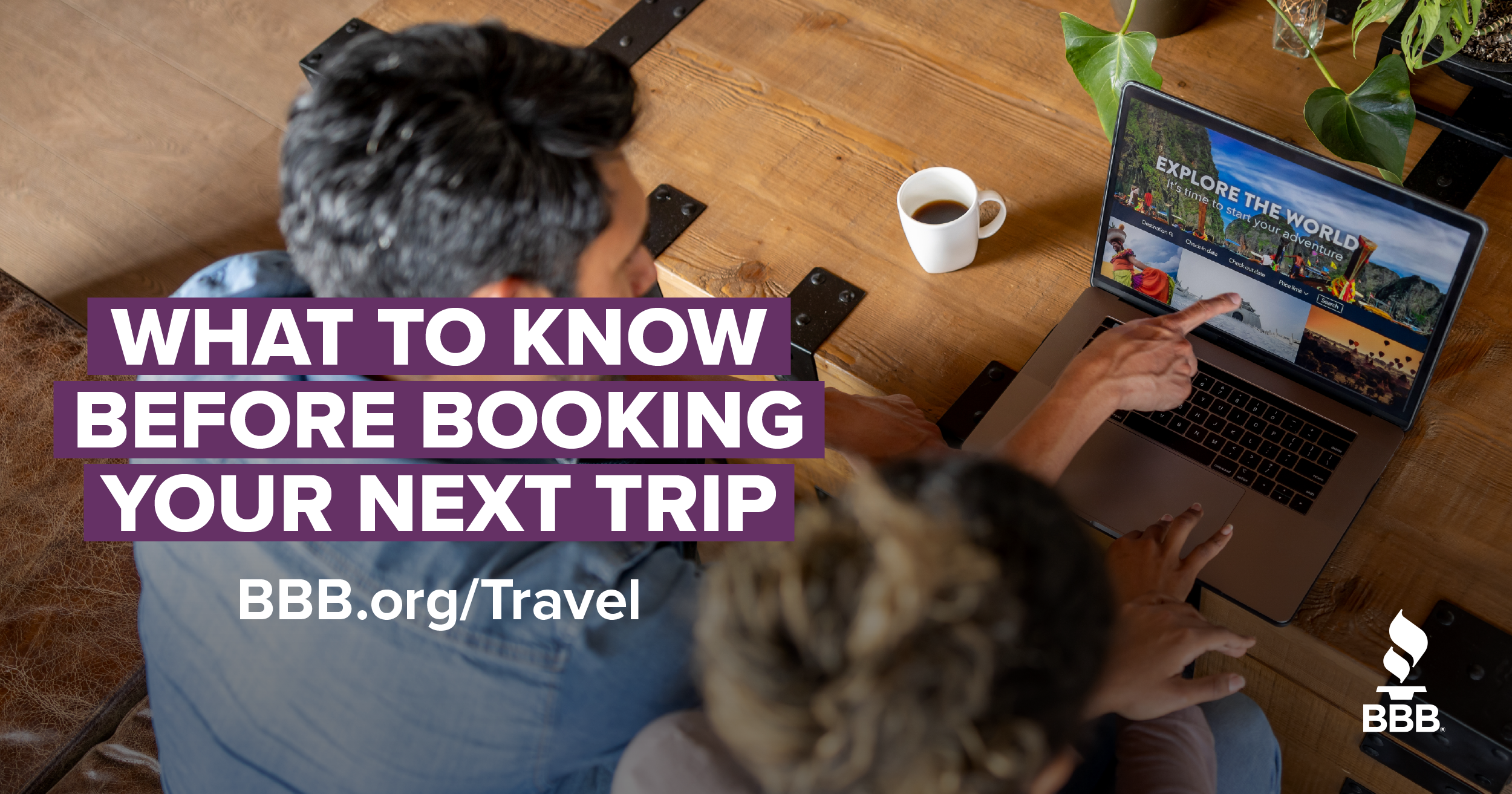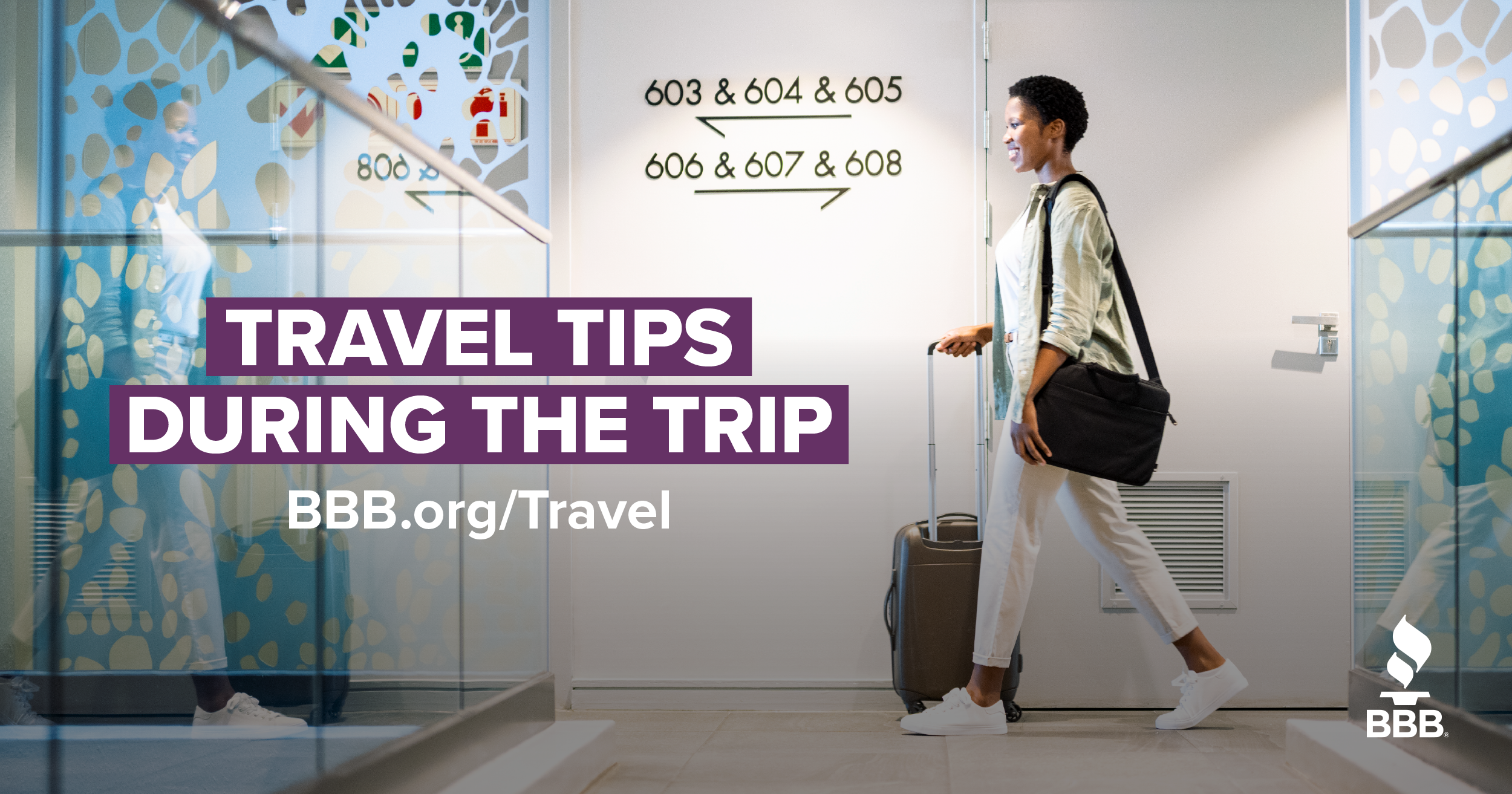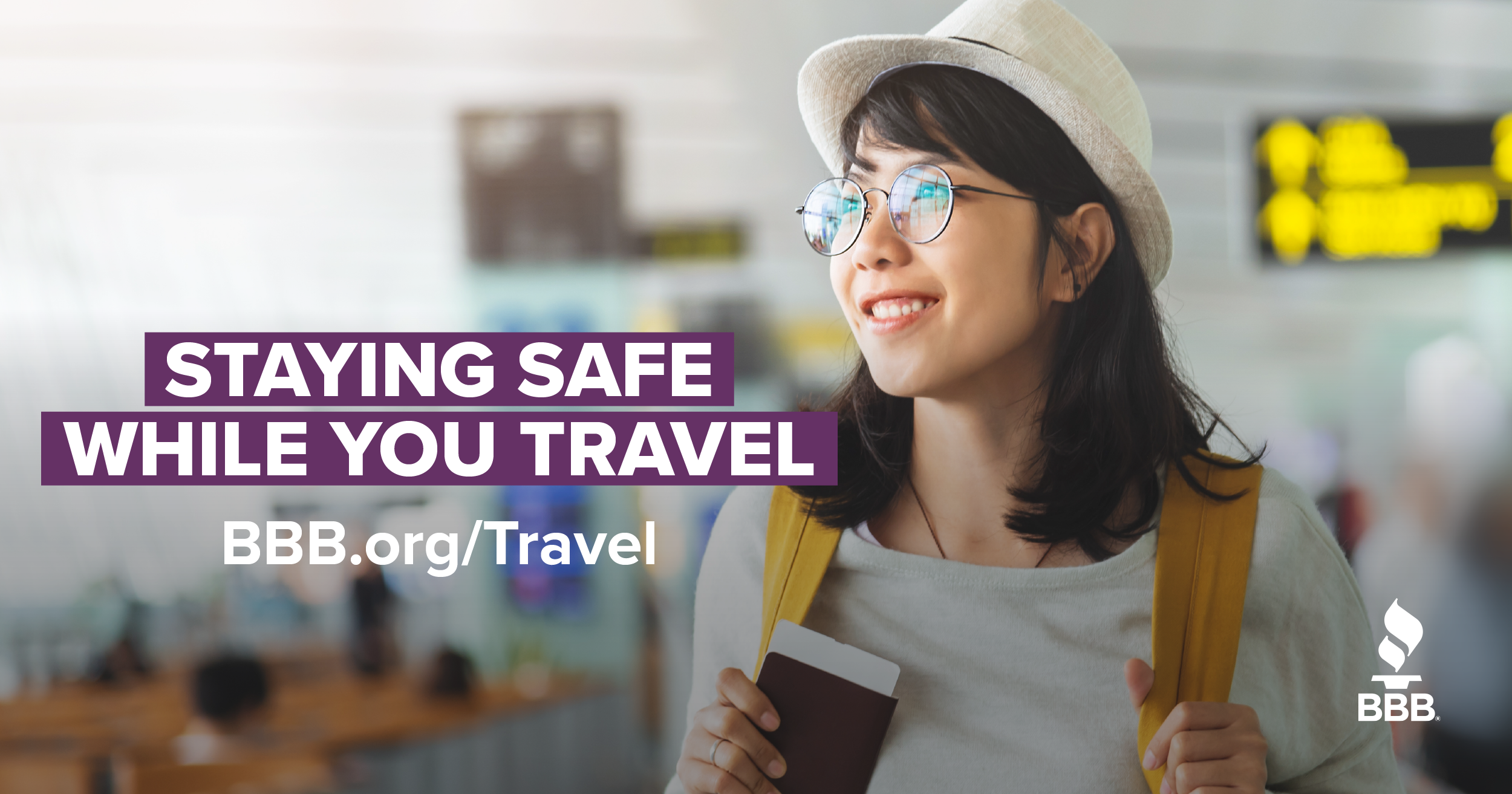What if you lose your passport? What if you get sick? Traveling to new destinations is exciting, but it's also essential to be prepared for unexpected situations that may arise. Trust BBB to give you the answers you seek.
Planning a trip can be exciting but also worrisome. What if something bad happens?
What if you lose your passport, or what if you become sick? Checking off all the boxes when planning your trip can help alleviate some of these worries.
See below for tips on how to best prepare for your trip and resources for who to contact if something goes wrong when traveling.
Before departure: Where to get a passport? How to get TSA PreCheck? Do you need any vaccines?
- TSA PreCheck
- REAL ID
- NEXUS
- Global Entry
- Arrive Can App
Visit TSA.gov/precheck to find details about enrolling. The U.S. TSA works with enrollment partners to help enroll travelers in TSA PreCheck. Some of these partners are available in different locations and have different costs and additional benefits. Explore your options and check with BBB.org before deciding which enrollment provider is best for you. You’ll use your enrollment provider to renew your TSA PreCheck when the time comes.
REAL ID deadline is May 7, 2025. Find out how to get a REAL ID, what documents you need, and how to avoid fake REAL ID scams with tips from the BBB.
Learn more about getting a REAL ID.
Visit the U.S. Department of Homeland Security’s website for more information on REAL IDs and frequently asked questions.
Read more about applying for NEXUS with the U.S. Customs and Border Protection or the Canada Border Services Agency.
Global Entry is a U.S. Customers and Border Protection program that allows expedited clearance for pre-approved, low-risk travelers upon arrival into the U.S. Read more information on how to apply for Global Entry here.
In Canada, travelers can use the Arrive Can App. This app lets you make advance declarations when coming into Canada. Although it's only available at major airports, it makes the customs and immigration process smoother.
U.S. resources
U.S. passport information
U.S. travel advisories list
U.S. CDC travel health notices
Travel insurance (CDC)
Healthcare outside of the U.S.
Travel vaccines (CDC)
Canadian resources
Canadian passport information
Travel health notices
Travel insurance (Government of Canada)
Healthcare care outside of Canada
Travel advisories list
During your trip: What if you lose your license or your passport is stolen? What if you get arrested?
U.S. resources
- U.S. Department of State, Office of Overseas Citizens Services
(888) 407-4747 (from the U.S. or Canada) or
(202) 501-4444 (from overseas). - Help for U.S. citizens victims of crime overseas
- U.S. embassy or consulate
- Healthcare resources for U.S. travelers (CDC)
Canadian resources
After your trip: Notice a weird bank charge? Forget something? Feel sick?



















